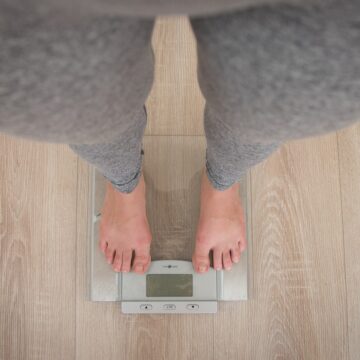
- Cutting back on calories could mean avoiding certain foods and correcting eating habits.
- Throughout the day, there are several ways you can do to reduce your calorie intake.
- Several studies have shown that consistently following these healthy eating habits could effectively cut your calorie consumption.
Calories are what people get from the food and drink they consume. It is also what people avoid consuming too much when they want to lose weight. Cutting back on calories is not immediate but entails consistently following several healthy eating habits, which include:
1. Eating a fiber-rich breakfast

Fiber-rich foods can make you feel full sooner and longer. According to Kristi King, spokesperson for the Academy of Nutrition and Dietetics, eating a high-fiber breakfast can make you feel full sooner and prevents you from eating more. Also, one study published in the Annals of Nutrition and Metabolism showed that people who ate oatmeals at breakfast consumed 31% calories less by lunchtime than those who had sugared corn flakes.
2. Consuming protein-rich foods throughout the day

Like fiber, protein can make you feel satisfied and less hungry. A study published in the Academy of Nutrition and Dietetics Journal also proves that high-protein containing meals can provide longer fullness than low-protein meals.
3. Drinking tea or plain coffee

According to a recent study in the Public Health journal, black coffee drinkers consume 69% lesser calories within the day than those who like their coffee creamy and sweet. Also, tea drinkers can reduce their calorie intake by 43% by not putting add-ins on their tea.
4. Choosing carbonated water instead of soda

A can of soda or sugar-sweetened drink contains 150 calories. So instead of drinking soda, King recommends switching to sparkling water, to which you can still add fruit and a little sweetener for added flavor.
5. Refraining from using cooking oil

King advises that when sautéing vegetables or cooking on the stovetop, you should use a nonstick cooking spray instead of oil in the pan because one tablespoon of cooking oil already contains 120 calories.
6. Avoiding calorie-rich salad toppings

While a vegetable salad has fewer calories, the toppings you choose to add might double the calories you are about to consume. King shares that salad topping such as cheese, croutons, bacon, and dried fruits are high in calories.
7. Ordering food before you get hungry

Ordering food before you get hungry is proven effective by a study published in the Journal of Marketing Research. In this study, people who chose catered food options an hour before mealtime tended to choose foods with fewer calories than those who ordered at mealtime and ate right after.
8. Cooking at home more often

Among its many benefits, cooking at home allows you to choose healthier options and helps you reduce your calorie intake. According to a Public Health Nutrition journal study, people who cook dinner for six-seven nights/week consumed 150 fewer calories each day than those who only cook once.
9. Not eating in front of the TV

Watching television while eating tends to make you overeat because it does not register to your brain that you have already eaten prompting you to eat more.
10. Keeping the kitchen clean

Maintaining the cleanliness of the kitchen also affects how you consume calories. A study found that women in an unorganized kitchen for 10 minutes ate twice as many cookies and more calories than those who waited in the same room but ate after the room was tidied.
Source: Time
The Death of Black Coffee:
Latest studies have found that 1 tiny tweak to your morning coffee puts your body into fat-burn ing mode for the rest of the day.
This coffee trick takes less than 10 seconds…
Yet, it instantly ignites your metabolism and boosts your health, energy and well-being at the same time!
Here’s to an amazing start to your day 🙂

